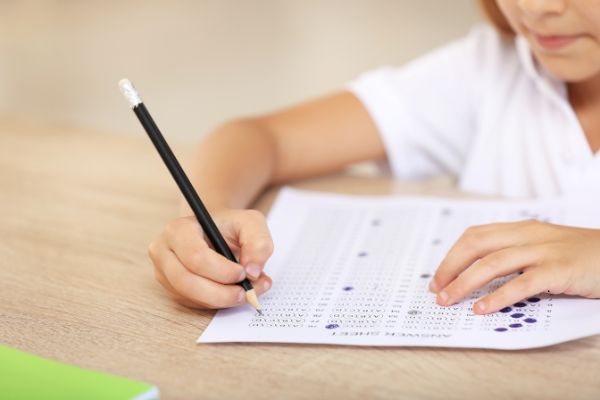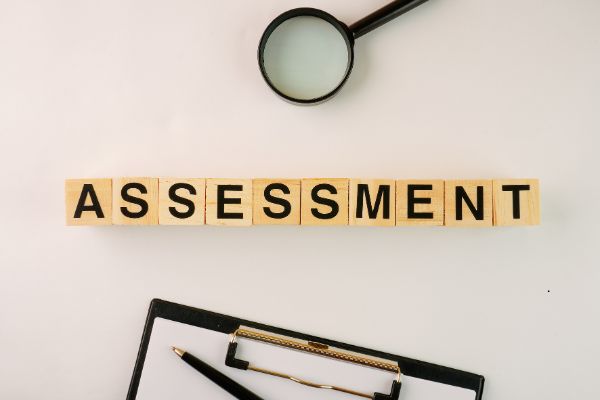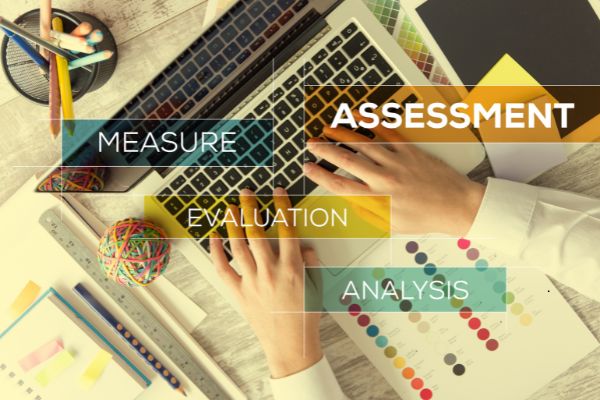How Long Does Psychoeducational Testing Usually Take
Psychoeducational testing typically takes 4 to 6 hours total, usually divided into one or two separate appointments. This comprehensive assessment evaluates cognitive abilities, academic skills, and emotional functioning through standardized tests, interviews, and behavioral observations. The exact time frame depends on individual needs and test complexity, with some cases requiring additional sessions.
The assessment process includes intelligence testing, achievement evaluations, memory assessments, and detailed interviews with the individual and caregivers. Mental health professionals or school psychologists conduct these evaluations to identify learning disabilities, ADHD, and other conditions affecting academic performance. According to the American Psychological Association, after testing completion, professionals need additional time to analyze results and prepare comprehensive reports with specific recommendations.
Testing sessions involve problem-solving activities, reading comprehension tasks, mathematical assessments, and emotional health evaluations. The multi-method approach combines quantitative test scores with qualitative insights from interviews and observations. This thorough evaluation ensures accurate identification of learning strengths, challenges, and areas needing targeted support interventions.
Report preparation typically requires extra time beyond the testing sessions to ensure accuracy and comprehensive recommendations. The final document serves as a valuable resource for educators, therapists, and families, guiding the development of personalized educational strategies and accommodations for optimal learning outcomes.

What Is Psychoeducational Testing?
A psychoeducational assessment is a comprehensive evaluation that measures how a person learns and processes information. This testing examines thinking skills, academic abilities, and emotional functioning to understand learning strengths and challenges. The assessment helps identify learning disabilities, attention difficulties, and other conditions that affect school performance. It provides valuable information for creating effective educational support plans and accommodations.
The evaluation combines multiple testing methods to create a complete picture of learning abilities. These include standardized tests, personal interviews, and behavioral observations during different activities. Mental health professionals or school psychologists typically conduct these assessments for students experiencing academic difficulties. The results help teachers, parents, and students understand how the mind works best. This information guides the development of personalized learning strategies and support services offered by FC Psych Experts.
How Long Psychoeducational Testing Sessions Last
A psychoeducational assessment generally spans 4 to 6 hours of active testing time. This timeframe gets split between one or two different appointment sessions. The exact duration depends on individual needs and evaluation scope required. Each session includes multiple activities like cognitive testing and academic skill assessments. Sessions also involve interviews with the person and their caregivers or teachers. This scheduling approach allows thorough evaluation without overwhelming the test taker completely.
Some complex cases may need additional testing time or extra sessions. The main goal focuses on ensuring all necessary functioning areas get assessed properly. This thorough approach provides accurate and truly helpful results for everyone involved. For comprehensive testing services, neuropsychological evaluations may also be recommended in certain cases.
What Happens During Your Testing Session
During a psychoeducational assessment, you can expect several different evaluation methods combined together. These include personal interviews, standardized tests, and careful behavioral observation techniques. These methods work together to measure thinking abilities, school skills, and emotional health. The sessions get organized to create a complete picture of strengths and challenges.
The assessment gets designed to be thorough while staying manageable for participants. Most people will experience various testing situations during their appointments. These include problem-solving activities, reading comprehension tasks, and emotional health evaluations. Each part aims to understand different aspects of how the mind works. The Learning Disabilities Association of America provides additional resources for understanding these assessment types.
How Interviews Help During Testing
Interviews serve a vital function in psychoeducational assessments for gathering important background information. They help collect detailed data about the person’s history, current abilities, and specific concerns. These conversations happen with the individual being tested and sometimes include family members. Teachers or other educators may also participate to provide a complete perspective. Interview sessions allow evaluators to discover important details that standard tests cannot capture. This process helps professionals understand environmental factors that affect performance and daily behavior. These contextual details prove essential for making accurate diagnoses and creating effective intervention plans. Our clinical psychological evaluations incorporate these comprehensive interview techniques.

Different Test Types Used in Evaluations
Psychoeducational assessments use many different standardized tests to measure various thinking and academic skills. These tests might include intelligence measures, achievement evaluations, and memory function assessments. Each test gets designed to evaluate specific aspects of how the mind works. This includes verbal reasoning abilities, mathematical skills, and attention span capabilities. Test results provide measurable data that gets combined with interview information and observations. This combination creates a complete picture of the person’s thinking and academic abilities. This multi-method approach ensures balanced and thorough assessment results following guidelines from the National Academy of Neuropsychology.
Intelligence Testing Methods
These tests evaluate general thinking abilities like problem-solving skills and logical reasoning patterns. They measure different aspects of intellectual functioning including abstract thinking and complex concept understanding. Results provide clear insights into overall cognitive strengths and areas needing improvement. This helps identify specific areas where additional support might prove most beneficial. For individuals with attention concerns, CHADD provides valuable resources for understanding how ADHD affects testing performance.
Achievement Testing Methods
Focus on measuring academic skills in specific school subjects like reading, math, and writing abilities. They show how well a person performs in these areas compared to others their age. Results also compare performance to typical grade-level expectations for academic skills. Results help identify academic strengths and areas that need more support and attention. This guides creation of targeted educational support plans and helpful learning strategies. These interventions often complement family therapy approaches when working with children and adolescents.
Memory Function Assessments
Measure different types of memory including short-term, long-term, and working memory capabilities. These tests evaluate how well people can remember information and use it effectively. They also measure how well individuals can apply recalled information to complete tasks. Understanding memory function proves crucial for identifying specific learning difficulties and planning strategies. This helps create effective methods to improve memory skills and enhance overall learning. The National Institute of Mental Health provides research-based information about memory and learning processes.
Combined Information Method
This approach brings together measurable test results with personal information from interviews and observations. By combining number scores with insights from face-to-face interactions, evaluators understand the complete picture. This creates a well-rounded view of a person’s thinking abilities and academic skills. This comprehensive approach ensures that final recommendations prove both accurate and practical for real-life situations. Professional psychologists follow established APA ethical guidelines when conducting these integrated assessments.
Observation Techniques During Testing
Observational techniques form an essential part of psychoeducational assessments for gathering behavioral information. These observations may happen in clinical settings or during natural situations like classroom environments. Evaluators watch for patterns in behavior, social interactions, and how people engage with tasks. They also note how individuals respond to different challenges and learning situations. Observations add important context to test results by showing how people use skills daily. This approach helps identify areas where extra support may prove most helpful. It also helps professionals understand how individuals handle everyday challenges and social situations. For families needing additional support, co-parenting counseling can help coordinate care across different environments.

Reviewing Assessment Results
Once the assessment gets completed, the next step involves analyzing all collected results carefully. This includes reviewing data from tests, interviews, and observations to find important patterns. Professionals draw conclusions about the person’s thinking abilities and emotional functioning from this information. The analysis helps identify strengths, weaknesses, and areas that need targeted intervention support.
Preparing a detailed report forms a crucial part of this entire process. The report summarizes all findings, provides clear interpretations, and offers specific recommendations for support. It also includes practical intervention strategies that can help address identified needs. This thorough analysis ensures that results prove meaningful and actionable for everyone involved. Research from PubMed supports the importance of comprehensive analysis in assessment accuracy.
Time Needed for Report Writing
After completing all assessment sessions, preparing a detailed report typically requires additional time. This report includes a complete summary of findings, clear interpretations of test results, and specific recommendations. It also provides guidance for educational or therapeutic interventions that can help. The main goal focuses on creating a clear and useful document for future support.
The report gets crafted carefully to ensure both accuracy and clarity for all readers. It serves as a valuable resource for educators, therapists, and families who need guidance. This helps them understand the assessment results and implement effective strategies successfully. The comprehensive document supports the individual’s continued growth and development over time. For ongoing support, cognitive behavioral therapy may be recommended based on assessment findings.
How Testing Time Affects Results Quality
The length of the assessment can directly impact how deep and accurate the results become. Longer assessments may provide more complete insights into the person’s abilities and needs. Shorter sessions might limit the scope of evaluation and miss important details. The assessment needs enough time to capture a full picture of individual needs.
Making sure each part of the assessment gets sufficient time allows for more accurate understanding. This includes proper evaluation of thinking abilities and emotional functioning throughout the process. This thorough approach ultimately leads to better-informed recommendations and more effective support strategies. Adequate time ensures that all important aspects get properly evaluated and documented. Professional standards from the Florida Board of Psychology emphasize the importance of thorough assessment procedures.
Conclusion
Psychoeducational testing provides essential insights into how individuals learn and process information most effectively. The comprehensive 4-to-6-hour assessment process combines multiple evaluation methods to create accurate results. These include standardized tests, personal interviews, and behavioral observations that measure thinking abilities and academic skills. The thorough approach ensures professionals can identify learning strengths, challenges, and areas needing support. After completing testing sessions, detailed reports guide the development of personalized educational strategies and interventions. Understanding the assessment timeline helps families prepare for this important evaluation process. The time investment proves worthwhile as results provide valuable guidance for educational success. Whether identifying learning disabilities or optimizing academic performance, psychoeducational assessments offer the foundation for effective support. This comprehensive evaluation ultimately helps individuals reach their full learning potential through targeted strategies and accommodations. For more information about our assessment services, contact us to schedule a consultation or learn more about our team. The Mental Health America organization provides additional resources for understanding mental health and learning support services.
FAQs
Who should get a psychoeducational assessment?
Students experiencing academic difficulties, attention problems, or learning challenges should consider psychoeducational testing. This includes children struggling with reading, math, or writing despite adequate instruction. Adults returning to school or experiencing workplace learning difficulties may also benefit. The evaluation helps identify specific learning disabilities, ADHD, or other conditions affecting performance.
How much does psychoeducational testing cost?
Psychoeducational assessments vary in complexity and setting. Private practice evaluations generally cost more than school-based or clinic assessments. Insurance coverage varies but may cover testing when medically necessary for diagnosis. Some schools provide free evaluations through special education services for eligible students.
Can adults get psychoeducational testing?
Yes, adults can definitely receive psychoeducational assessments at any age for various reasons. Many adults seek testing to understand lifelong learning difficulties or attention problems. College students often need assessments to qualify for academic accommodations and support services. The testing process remains similar but focuses on adult-relevant academic and cognitive skills.
What happens if learning disabilities are found?
When learning disabilities get identified, the assessment report provides specific recommendations for support. Schools must develop individualized education plans or 504 plans for eligible students. These plans include classroom accommodations, modified assignments, and specialized instruction as needed. Adults may receive workplace accommodations or college disability services based on results.
How often should psychoeducational testing be repeated?
Psychoeducational assessments typically need updating every 3 to 5 years for ongoing services. School districts often require new testing before transitioning between educational levels. College students may need recent assessments within 3 years for accommodation services. The original evaluator can recommend appropriate retesting timelines based on specific needs.

